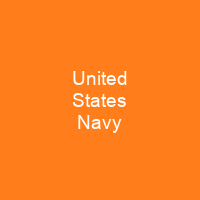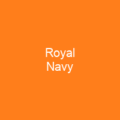Imagine a powerful force, one that has shaped history and continues to protect our nation’s interests across the globe – this is the United States Navy. From its humble beginnings during the American Revolutionary War to its current status as a global maritime powerhouse, the Navy’s journey is nothing short of awe-inspiring.
The Birth of an Icon
It all started in 1775 when the Continental Congress authorized the purchase of two vessels for armed cruises against British merchantmen. This act marked the birth of the Continental Navy, a pivotal moment that would lay the foundation for what is now one of the world’s most formidable navies.
The Early Years and Challenges
The early years were fraught with challenges, including financial constraints that led to the loss of many ships. Despite these setbacks, the Navy continued to evolve, playing crucial roles in conflicts such as the American Civil War and World War II. Its resilience and adaptability have been key to its enduring success.
A Modern Naval Force
Today, the United States Navy is a vast network of over 400,000 personnel, operating more than 350 ships and 3,650 aircraft. Its mission encompasses everything from combat operations to humanitarian aid, making it a cornerstone of American military might.
The Fleet in Action
From the iconic aircraft carriers that serve as floating airbases to the stealthy submarines that patrol beneath the waves, each ship and vessel plays a vital role. The Navy’s fleet is not just a collection of ships but a dynamic force capable of projecting power across vast oceans.
The Future of Naval Warfare
As technology continues to advance, so too does the Navy’s approach to warfare. From the deployment of new aircraft carriers and battleships to the development of cutting-edge missile systems, the future is bright for this ever-evolving force.
Strategic Partnerships
The Navy’s relationship with other branches, such as the Marine Corps and Coast Guard, ensures a cohesive approach to global challenges. Together, they form an unbreakable bond that strengthens America’s maritime presence worldwide.
A Global Presence
The United States Navy maintains a significant global footprint, with bases in key locations around the world. From the bustling ports of San Diego and Norfolk to the strategic positions in Japan and Europe, these installations serve as hubs for operations and training.
Key Installations
Notable bases include Naval Base San Diego, home to a significant portion of the fleet; Hampton Roads, Virginia, with its vast shipyards; and the ever-important Pearl Harbor, which remains a symbol of resilience and strength.
The Evolution of Naval Doctrine
From the early days of concentrated battleship fleets to the modern emphasis on aircraft carriers, the Navy’s doctrine has continually adapted. The lessons learned from conflicts like World War II have shaped its current strategies, making it one of the most technologically advanced navies in the world.
The Role of Innovation
Innovation is at the heart of the Navy’s success. From the development of new technologies to the implementation of forward-deployment strategies, the Navy remains committed to staying ahead of the curve.
Conclusion
The United States Navy stands as a testament to American ingenuity and determination. Its rich history, combined with its cutting-edge capabilities, ensures that it will continue to play a crucial role in safeguarding our nation’s interests for generations to come. As we look to the future, one thing is certain – the Navy’s journey is far from over.

You want to know more about United States Navy?
This page is based on the article United States Navy published in Wikipedia (retrieved on January 31, 2025) and was automatically summarized using artificial intelligence.







